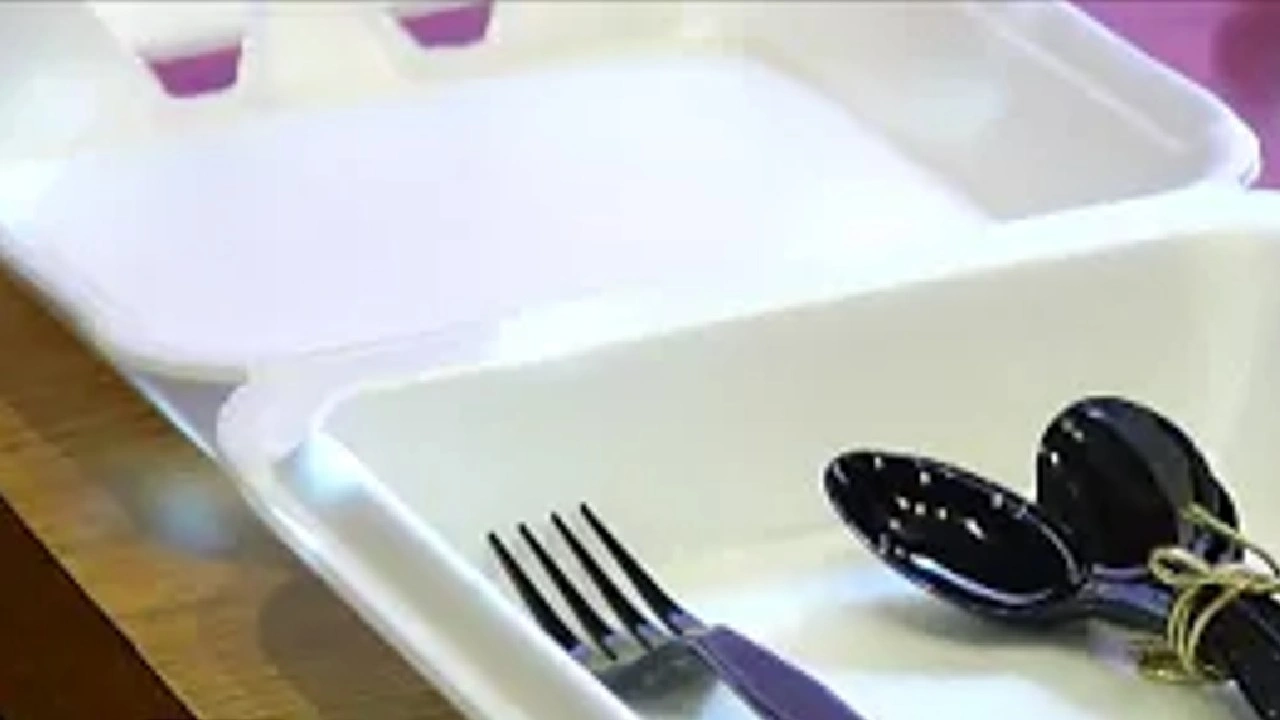A bill in the legislature aims to change how Minnesota disposes of its waste

Credit: KSTP
At North Mississippi Regional Park, you’ll find the riverfront littered with packaging waste: plastic and glass bottles, food wrappers, foam containers, and even plastic wrapped around a tree.
“There’s more plastic generated globally, now more than ever,” explains Mary Kosuth, an environmental health scientist at the University of Minnesota. “In 2023, we were creating globally about 400 million metric tons of plastic.”
The Minnesota Pollution Control Agency says it’s a problem that’s getting worse.
“Collectively, we have a 5.9-million-ton trash problem a year, and that number is only expected to grow,” MPCA Assistant Commissioner Kirk Koudelka told the State Senate Environment, Climate, and Legacy Committee this week.
The agency says less than half that amount is recycled or composted.
The rest, Koudelka says— more than 3 million tons— ends up in waste treatment facilities or landfills every year.
“It makes me feel like we can do a lot better,” Kosuth says. “If we’re not recycling more, than our resources will just continue to go down, and our waste will continue to go up, and that’s just not something I think we can sustain.”
But a new bill in the state legislature aims to change that.
The ‘Packaging Waste and Cost Reduction Act’ would require all in-state packaging to be reusable, recyclable, or compostable by 2032.
“It is a bill that establishes a producer funded system to reduce packaging and single use plastic, make recycling easier, and lower taxpayer costs for managing waste,” says Senator Kelly Morrison, (DFL-Deephaven) the bill’s co-sponsor.
The measure would shift the cost of recycling to packaging product producers.
It would also create a non-profit organization that would collect fees from those producers.
“This law creates an incentive for the producers of that packaging that’s being sent to our homes,” notes Paul Austin, the Executive Director of Conservation Minnesota. “Instead of just us taxpayers paying for disposal of all this waste, the people who are producing the waste will have an economic stake in making that waste as low as possible.”
But some product producers are pushing back— calling on lawmakers to improve recycling for materials with low recovery rates, rather than creating new rules and fees.
“Our industry has a measurable record of success in making paper and paper-based packaging sustainable with market-based approaches, so we must respectfully oppose this bill at this time,” Frazier Willman, with the American Forest and Paper Association, told the committee.
The MPCA is to oversee the program, which, under the bill, is to be set up by 2025.
One thing not yet discussed is how much all of this will cost.
This is the very beginning of the hearing process, and the bill has now moved to a new committee.
Kosuth says she’s trying to stay positive about the proposed changes.
“It makes sense to me that manufacturers share the burden of this plastic waste,” she says. “I can only imagine it’s going to get worse as we go into the future, unless we can do something about it.”